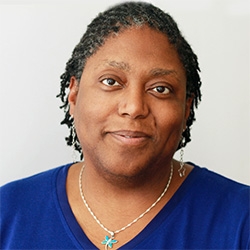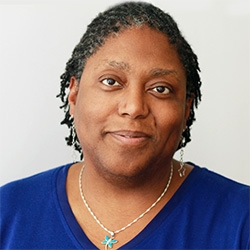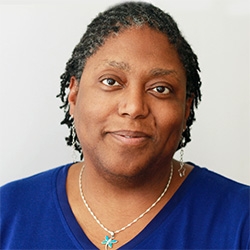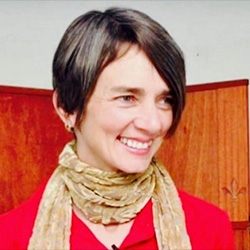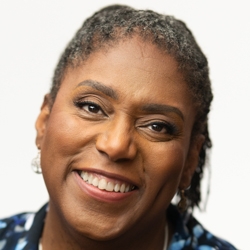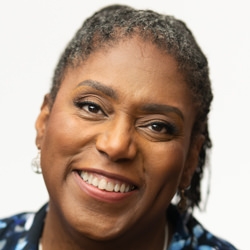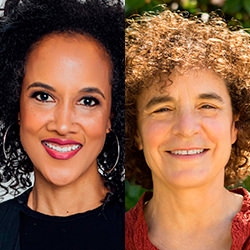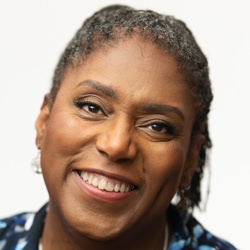
Search Results: socialization
-
When bullying occurs, if we do our own healing, our brains can become more sharp and present and willing to take action to connect and to begin to shift and mitigate the harm that trauma does in our world. We can reduce trauma inflicted upon others when we recognize the patterns of abuse and bullying, hold zero tolerance for it, bring in support for both sides of the conflict, and take action to effect systemic change. Read on for more.
-
This pandemic is an immense opportunity, and a dire catastrophe in the making. It’s a crisis within many planetary crises — during which, our habits as individuals, and as a collective, are challenged because they don’t sustain us. Now we are pushed to respond freshly and join forces in ways that seemed impossible before.
-
If we are to transform the existing social order, and shift to a mode of liberation for all, we'll need to look at our own participation in it. This includes how much we are able to focus on keeping our hearts open; speak to impact without attributing intention; and retain a humility that includes our systemic context. Read on for "how to" when we are in a position of less power.
-
Love keeps the thread of connection intact in times when all around us we see the human fabric becoming threadbare. When we dig deep with love into guessing what others care about that had given rise to their actions, it changes us. It brings us closer to understanding the incomprehensible -- and closer to vision, imagination, humility, curiosity, commonality, and loving action. Read on for more on applying this to people we deem "conspiracy theorists", and those who are on the other end of the political divide.
-
When we apply and practice NVC over a number of months in an organization, it can create group norms that make learning go deep faster. These new norms can impact people's interactions with others both inside and outside of work. From here, there's potential for people to start seeing value when they share these skills and experiences. This may create a ripple effect of interest in applying NVC across different domains in life.
-
Sharing more vulnerably provides opportunities for fulfilling connection. As social beings we rely on feedback to see our effect on others. We can get that feedback through body language, facial cues and words. To expand your capacity to share more vulnerably you can create supportive conditions and timing. You can ask for feedback by making in-the-moment requests of others and yourself before and after you share.
-
"Privilege" has many meanings, which can bring confusion. Here are questions essential to navigating challenges in NVC community about "privilege": How to call attention to times when language is used to divide and not connect? Where are people coming from when they say "privilege"? How to focus on using whatever language supports the depth of connection we seek with the heart of the people in front of us? Read on for more.
-
Part of nonviolence is having an infinite circle of care that includes simultaneous care of ourselves, others and groups: no one is beyond the pale. Plus, it's about having an infinite trust in the possibility that we can reach someone's heart even if we don't now know how -- since regardless of what this other person has done, they have the same needs. Without this kind of trust, nonviolence would crumble as way to create change.
-
Roxy Manning discusses the need to expand our understanding of observations within Nonviolent Communication (NVC). She challenges the idea of objective observation, noting its limitations, and introduces internal observations, citing personal experiences to illustrate their influence on emotions and self-perception. Additionally, she emphasizes systemic awareness as a crucial aspect of observation, highlighting its importance in understanding broader societal issues. Overall, Roxy advocates for a comprehensive approach to observations in NVC, incorporating external, internal, and systemic perspectives to foster inclusivity and empathy.
-
The word "privilege" signifies the benefit to the person having it, and the relationship between that person’s benefit and others' lack of benefit. When privileged, there are incentives to not see this interdependent link. For instance, it's easier for the wealthy to think of the poverty of many and the wealth of some are unrelated. If the wealthy want to keep wealth they would need to continue with approaches rooted in this separation.
-
Whether privileged or not, its not easy to see the humanity of others in different social locations, especially if their actions have unwanted impacts and have left behind our humanity. Aiming for “both sides hearing each other” empathically, and to focus on effect rather than intent when we have more privilege, may theoretically lead to liberation. Yet, in practice it can reinforce rather than transcend power differences -- unless there's specific ways to focus attention and choice. Here, its important to transform expectations into working with willingness, and within our own terms and timetable.
-
Certified CNVC trainer Roxy Manning, Phd, answers a question: how to create a safe space for a first time group working on power and privileges ?
-
Certified CNVC trainer Roxy Manning, Phd, answers a question: how do we use the term "harm" in NVC? Think of the word "harm" as an unmet need, practice observation to identify the need or needs that are not met.
-
Most people want to punish perpetrators of sexual violence. Unfortunately, punishment doesn’t lead to lasting widespread change. Rather, we can identify root causes and conditions that sustain violence. That means shifting from individual to systemic lenses, and from punitive to restorative responses. It means collective learning about how such acts are nurtured and persist. This can reduce the chance of it happening again.
-
Hearing actions that lead to living beings' harm, you may notice that some people believe that the needs of some must come at the cost of others. This view arises from fear and an economic system meant to promote and feed off false scarcity. When struggling with this, grieve, receive support, and notice your feelings show you certain values matter to you. From this sense of purpose you can find where you can be of most service.
-
How do you navigate tension around honoring all aspects of your experience, as you express yourself within your community, and seek to take action that supports your vision for yourself and your people? How do you attend to your self-determination while honoring others’ path? Read on for an example of how the authors navigated this in response to tensions in NVC trainer community that included requests for her to self silence.
-
Roxy Manning discusses the distinction between group purpose and group agreements. Group purpose is identified as the reason for gathering, such as learning to facilitate groups with a focus on inclusion and contribution. Group agreements are the policies or intentions to support the purpose, like creating space for all voices or forming affinity groups to address identity-specific challenges. The emphasis is on how agreements facilitate the manifestation of the group's purpose.
-
What is empowered speech and how does it link to interdependence? How do you speak in a way that increases the chances of being heard and creates space where individuals are more inclined to listen and act? In this excerpt from the 2021 course, Working Together for Change, Itzel and Kathy explore how to do this by integrating empowered speech, attuned speech, and a commitment to maintaining connections.
-
There is more to the NVC skill of Observation than the external level of what a video camera sees or hears. In this video, Roxy demonstrates that to fully understand what is happening, we need to know all three layers of observation: External, Internal, and Systemic. 
-
Join Itzel Hayward and Kathy Simon as they present two role-play scenarios showcasing diverse approaches to navigating difficult conversations. Throughout the demonstration, they underscore the significance of cultivating self-empathy and mindfulness to effectively engage in challenging dialogues. Specifically, they introduce a role-play scenario concerning affirmative action, aimed at illustrating the contrasting outcomes when utilizing or not utilizing nonviolent communication skills.







